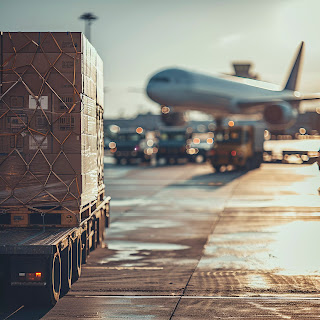The Economics of Air Cargo Pricing: RTSCorp’s Perspective
Air cargo is a vital part of the global economy, responsible for transporting high-value goods across long distances quickly and reliably. However, the economics behind air cargo pricing is complex, influenced by numerous factors that can shift rapidly based on market conditions. With its commitment to advancing logistics technology, RTSCorp has developed innovative approaches to air cargo pricing, helping to improve efficiency, reduce costs, and support more strategic decision-making.
Understanding Air Cargo Pricing
Air cargo pricing is a dynamic process that takes into account several key factors. These factors include fuel costs, route distances, aircraft types, and demand fluctuations. Unlike other forms of cargo transportation, air cargo often involves transporting goods that are time-sensitive or require urgent delivery, which adds an urgency premium to pricing. Additionally, air cargo capacity is limited, making space on an aircraft more valuable and, in many cases, more costly to secure.
Traditional pricing models, however, often struggle to capture the complexities of these factors, leading to inefficiencies and challenges in meeting customer needs. RTSCorp’s approach to air cargo pricing leverages data analytics and market insights to address these limitations and provide competitive pricing options that accurately reflect real-time market conditions.
RTSCorp’s Approach to Market-Driven Pricing
RTSCorp has developed solutions that integrate big data and machine learning algorithms to enhance pricing accuracy. By analyzing historical trends, market data, and demand forecasts, RTSCorp’s technology enables more responsive and adaptable air cargo pricing. This approach provides two main benefits: increased pricing transparency and optimized capacity usage, both of which are essential to maintaining competitiveness in the global logistics industry.
For instance, during peak demand periods, such as holiday seasons, RTSCorp’s systems can adjust prices dynamically, reflecting shifts in demand without sacrificing customer satisfaction. Similarly, during periods of lower demand, the system can identify opportunities to offer competitive pricing, helping clients manage costs while maximizing cargo space utilization.
The Role of Dynamic Pricing in Air Cargo
One of the biggest challenges in air cargo pricing is managing the trade-off between filling cargo space and optimizing revenue. Dynamic pricing, enabled by advanced technology, addresses this issue by adjusting prices based on real-time data, allowing RTSCorp to capture and respond to changes in demand more effectively. If there is a sudden surge in demand on a particular route, the dynamic pricing model can adjust prices to reflect the premium associated with higher demand, ensuring that space is utilized in the most profitable way. Conversely, if demand falls, the model can offer discounts to ensure cargo space doesn’t go unused.
Dynamic pricing also benefits customers by providing flexibility and transparency. Clients gain a better understanding of the factors influencing air cargo pricing, building trust and fostering long-term partnerships. This data-driven pricing approach aligns the cost with actual demand, benefiting both carriers and customers alike.
Sustainable Practices and Cost Management
RTSCorp’s technology doesn’t just improve pricing—it also supports sustainable practices. With optimized pricing models, companies can reduce waste associated with half-filled cargo holds or inefficient fuel use. By maximizing each flight’s capacity, air cargo carriers can operate more sustainably, using fewer flights for the same volume of goods and reducing emissions.
This balance between cost efficiency and environmental sustainability is increasingly important as the logistics industry faces growing pressure to reduce its carbon footprint. RTSCorp’s approach to air cargo pricing reflects this commitment to responsible logistics by integrating sustainable practices within its core pricing framework.
Conclusion
The economics of air cargo pricing is a complex landscape, influenced by numerous factors that change in real time. Through data-driven strategies and market-driven insights, RTSCorp has developed innovative solutions that redefine air cargo pricing. By implementing dynamic pricing and prioritizing sustainable practices, RTSCorp has crafted a model that meets the needs of both carriers and clients while supporting the global demand for fast, efficient, and cost-effective air cargo transport.
As air cargo continues to grow in significance, RTSCorp’s commitment to advanced technology and responsible pricing models demonstrates how the logistics industry can evolve to meet future challenges, bringing efficiency and sustainability to the forefront of air cargo pricing.
.jpg)



.jpg)
Comments
Post a Comment